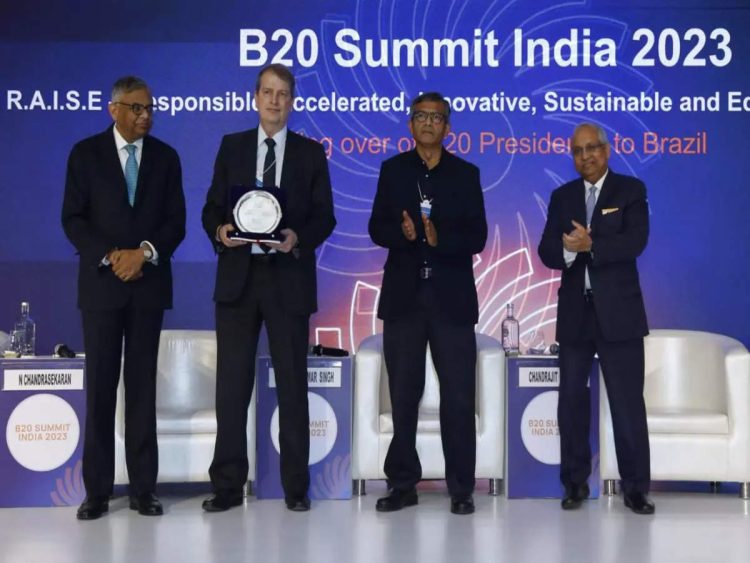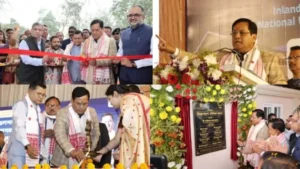What’s in News?
In a significant development for global business and economic collaboration, India has gracefully handed over the B20 presidency to Brazil, making the transition towards the G20 summit in 2024.
India’s Presidency of B20
The B20, a group representing the business community at the G20 summit, played a pivotal role under India’s leadership in shaping policies and fostering discussions on a range of critical global challenges. Led by N. Chandrasekaran, the B20 chaired by India, the presidency focused on the theme of “Vasudeva Katumbakam”- One Earth, One Family, One Future.
Theme of B20 Summit
The three day B20 summit, hosted by India from 25th August to 27th August, was characterized by the theme “R.A.I.S.E.”- Responsible, Accelerated, Innovative, Sustainable and Equitable Business. This theme summarises the core ideals that the B20 aims to propagate and prioritize. The summit brought together over 1,500 delegates representing approximately 55 countries, creating an atmosphere conducive to insightful discussions and multifaceted deliberations.
Prime Minister Modi’s Keynote Address
On the concluding day of the summit, Indian Prime Minister Narendra Modi delivered a keynote address that underscored the significance of collaboration between the business community and governments in addressing global challenges. This address was not merely a conclusion to the event but rather a reaffirmation of India’s commitment to fostering unity and cooperation for sustainable economic development.
B20’s Presidency from India to Brazil
On 27th August, Prime Minister Narendra Modi officially handed over the B20 presidency to Brazil. This transition is an evident to the cooperative nature of the B20 platform, which transcends borders and leadership changes while ensuring the consistent pursuit of policies that stimulate economic policies.
Background of B20
Established in 2010, B20 is among the most prominent Engagement groups in G20. Comprising representatives from diverse companies and business organizations, the B20’s primary objective is to form actionable policy recommendations that stimulate economic growth and development. These recommendations are developed by Task Forces (TFs) and Action Councils (ACs), which collaborate to establish consensus-based proposals.
Find More News related to Summits and Conferences




 Which Country Officially Uses Two Differ...
Which Country Officially Uses Two Differ...
 Historic Glory! Jammu & Kashmir Win ...
Historic Glory! Jammu & Kashmir Win ...
 Three Major Inland Waterways Projects Op...
Three Major Inland Waterways Projects Op...








